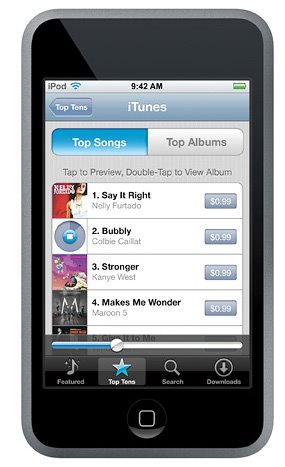I want to be quick to throw in the "usually" because there are plenty of websites that rank very well - they're driven by that stubborn sort of traffic that flocks to the celebrities' Tweet Decks, Facebook pages and the like. Most mere mortals will need to rely on search engine optimization techniques to do well.
Unless you happen to have that sort of credibility and fan base of the most recent Super Bowl quarterback, or the recent president elect, or the latest talent show-gone-wild winner, your website is but a guppy in an ocean of sharks. What makes your guppy website any good? What will take your website and propel it to the top ten ranks in the Google SERP?
Search engine optimization techniques. Nothing less than knowing what you're doing will get you ranking for the keywords you want to target. When you talk about search engine optimization, you are talking about two "breeds" of SEO:
On-Page SEO:
These are the crucial elements about your site content and architecture that get the website proper recognition by the spiders, bots and crawlers that exist simply to sniff out the good stuff. If you have what they are looking for, you get indexed and the ranking can begin.
Think of these spiders, bots and crawlers as blind, subterranean moles. If your on-page SEO is out of place, then the poor cave-dwelling moles, blind apart from the aroma of solid on-page SEO, cannot tell what your website is about.
If you have a website that is impregnated with i-frames, and uses a lot of Flash and images without "Alt" text, then you have simply masked your identity to these poor, blind moles. There are other factors to consider.
Off-Page SEO
These elements have to do with the inbound links to your website. These inbound links are essentially a web-democracy. It stands to reason that if "You got the right stuff" to quote the New Kids on the Block (who?), then you can expect to have link popularity.
In other words, plenty of one-way links going to your website will result if your website is worth the mention.
What are some good search engine optimization techniques for on-page SEO?
Keyword Research: Low Competition Out Bound Links: Authority Links Meta Data Content Text Decoration Titles and Subtitles NavigationKeyword Research: Low Competition
Keywords should be researched using various tools, probably the best being Google's own AdWords Keyword Tool. Find a search term list you want to target, and examine how competitive your competition is.
Factors you want to include are: the number of monthly searches for the exact term, using quotations. This will give you an idea of the number of sharks in the pool, though this one factor really is your least concern.
Just ask yourself what websites #11 - #3, 899, 754 have to do with you? Nothing, and you cannot worry about 3, 899, 754 competitors. You can worry about 10, however...
Take a closer look at the top 10, especially the top 5 competitors on the list. These are the real competitors to your terms.
When it comes to search engine optimization techniques, you want to know:
How much PageRank do they have? (This is the "authority" that this page would have in Google's eyes. More PageRank or PR means more authority.)
How many backlinks do they have?
To check your competition's backlinks, use the search operator:
link: [enter your domain address here]
Put that into Yahoo! Site Explorer, and then select "except from this domain" in the drop-down menu. This will tell you the number of backlinks for a page, in a much more accurate way than using a plugin such as SEO Quake or SEO for Firefox will tell you.
(By the way, those are good, free tools as well.)
What you are trying to do is you want to see how strong the first 10 websites are for every keyword you want to target. There are no hard and fast "rules" that state you cannot rank for any term - because in theory, you can.
In building your website, however, you want to make sure you get a better picture of what you are up against given a keyword phrase. Do this process with every keyword you want to target on a web page.
Tip: Try not to target too many keywords on a given page. Keep it to 1 or 2, and use the other keywords for additional pages or articles. More pages and keywords means more traffic.
Out-Bound Links: Authority Links
The out-bound links should not be to low, spammy, link farm sites, or what are called "free-for-alls." Try to link out to pages along the lines of Wikipedia, or one of Google's Webmaster Tools sorts of pages - these are trusted, authority sites.
Just make sure you link out in a way that makes sense, not in a way that is simply to link out to an authority site. Not all SEO's will agree on this point, but it does work well. Limit your links to just a few authority links of this sort per page.
Meta Data
Your meta data is in the "Head" section of your website, no matter your platform. Many themes on WordPress will use a CSS sheet or "page.php" folder in which you can find this data. Look for the "Head" part of your blog or website code.
What you want to do is make sure your keyword phrase is in the meta data, in the description as well as the title tag. This is all information in your meta data, and is critical to take advantage of since it is the first thing that the mole-like spiders and bots will "see."
Content
This is very critical to understand: when you have a website that is running on Flash, or using extensive i-frames, or images as "content" without using the "Alt" text, then your website looks very sparse to the blind moles which are called "spiders, bots and crawlers."
One of the best search engine optimization techniques is to place your keywords in the content of your posts and pages in these key areas:
1. First sentence and paragraph.
2. All titles and headings, and sub-headings.
3. Navigation buttons.
4. Out-bound links, and deep links to inner pages.
5. Last sentence and paragraph.
6. All images and videos should have keywords in the "Alt" tags and descriptions!
Make sure you do not treat your posts and pages like they are a turkey on Thanksgiving, or a turnover brimming with fruit. Do not stuff your pages and posts with keywords - this is a sure way to get penalized rather than awarded higher rankings.
For a safe bet, try for 1-2% density on your use of keywords - it looks much more natural.
Text Decoration
Your keywords should be randomly decorated. They should be made bold, italicized, underlined, and generally the star of the show. Don't overdo it, though, and you want to make it look natural for both the readers and also for your competition: no sense in handing in your keyword list to your competitors!
In other words, decorate them, but don't tell the world, "These are my keywords, they are researched very well, feel free to use them for yourself." That would be like shooting yourself in the eye with the BB gun like your mother warned you against...
Titles and Subtitles
This has been mentioned, but deserves to be mentioned again: use the keywords within your titles, headings and subheadings. These are the "H1, H2, H3..." on up to H6 tags in HTML.
Navigation
Use your keywords to navigate with. Link out to other pages using your keywords, those terms you want to rank for. The "blind moles" - a.k.a. the spiders, etc. - will use them the same way and register the keywords used.
Also make sure your keywords are relevant to what you are linking to. Do not use the keyword, best search engine optimization techniques to navigate to your privacy policy. Make it relevant.
What about some off-page search engine optimization techniques?
The key element here is to make sure you do not build links to a new website too fast using spam tools. Do not use tools that are going to spam the Dickens out of a forum, or spam blog comments for blog owners, or use link farms to get links.
Some of the best methods are often the easiest to get inbound links:
A) Have a blog contest! This is fun, natural, and builds community. You also get a bunch of inbound links while building credibility with your readers.
B) Be remarkable. This is just good business in general - try to see what everyone else is doing that just sticks up your nose - and don't join them. It doesn't matter if everyone is saying that PLR content is a great way to build a list, don't do it (for example).
Think of ways to outshine everyone else. In other words: be link worthy. Make your blog, service, or content so remarkable that you get natural links as a "thank you!"
C) Article market! Think about it. This article, for instance, has two lovely links in the resource box, for good reason: this method works.
D) Blog comment. Do not use software to do this for you - that's a great way to get banned from a website. Find blogs in your general niche, and read their posts, then comment accordingly - and think about what you're saying. Leave comments that are genuine, and you will get hundreds and thousands of links naturally, in due time.
Some say that the links in comment boxes are "nofollow," that's OK, too - your link graph should look natural, and not only have one variety of link pointing to your website.
E) Broadcast your message with PingFM, OnlyWire and Amplify. These are free software that will bookmark your posts, and broadcast your content and URLs to key Web 2.0 social sites. They work, without penalty, so long as you don't abuse the services.
There are shortcuts to these search engine optimization techniques, and they are legitimate ways to get backlinks and to make sure your on-page SEO is in order. Just be careful when you hear about services that promise thousands of dirt-cheap links, these are typically spam software.
Stick with software that is targeting quality backlinks, and not low-ball methods to get a website ranking highly. Keep your hands free from getting involved in methods that will abuse the web, and other people's websites, to garner a backlink.
These search engine optimization techniques are only a few of the ways to get backlinks, and to get discovered by the search engines. They will work for your websites, but if it sounds like "a lot of work," it is. Thankfully, there are great resources out there to help with both types of SEO:
On-Page SEO is made easier by the SEOPressor WP Plugin, read the review at that link to see what it does for on-page SEO, and to take advantage of the $7 special running currently.
iAutoblog the premier autoblogger software







0 comments:
Post a Comment